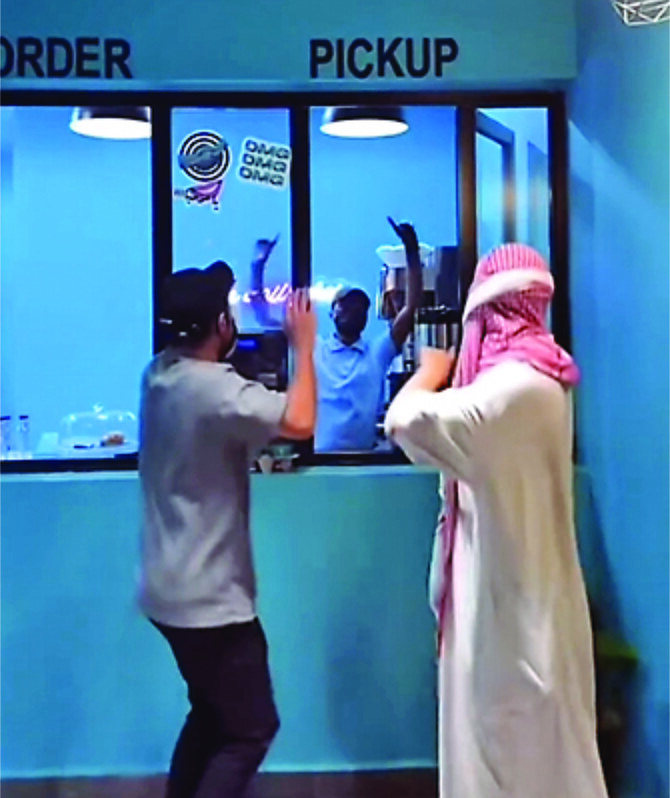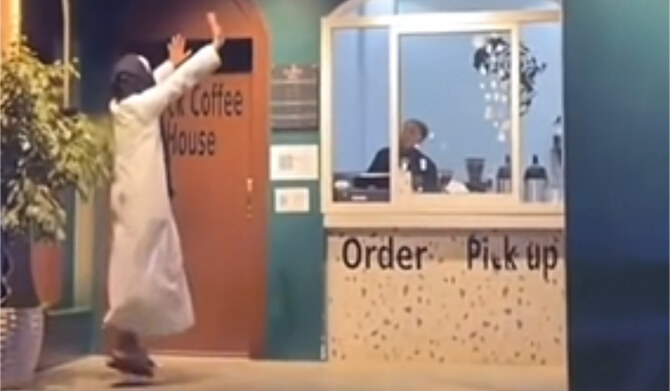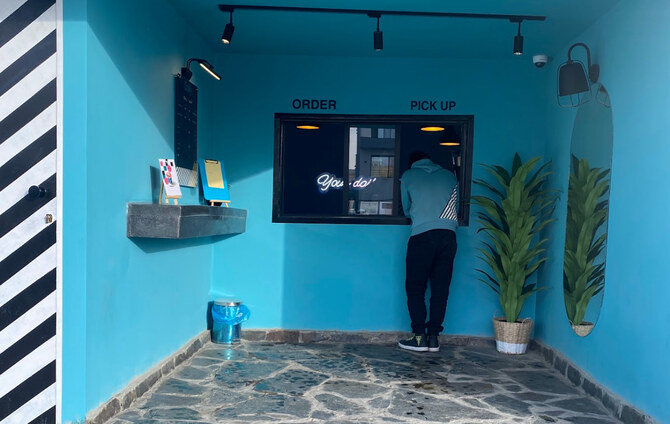RIYADH: In a market saturated with options, standing out is key, and some Saudi coffee shops have turned to quirky, attention-grabbing marketing strategies to attract customers.
From asking patrons to dance for their coffee to surprising communities with clever stunts, these marketing ideas are as creative as they are crazy. Here’s a look at some of the most intriguing promotions that have stirred up a buzz in the Kingdom.
Dance for your coffee
At Daily Cup, a Riyadh coffee spot known for its lively atmosphere, customers are not just greeted with the aroma of freshly brewed coffee but with an unusual challenge: dance for your coffee. The concept is simple yet effective. Anyone willing to bust a move in the front of store can earn themselves a free cup of coffee.

Namq launched a special promotion offering free coffee to anyone born in the 1990s. (Instagram/namq_cafe)
This lighthearted promotion quickly became a hit with younger customers, who relished the chance to show off their moves in exchange for a free drink.
“Honestly, it’s a lot of fun,” Deemah Mohammed, a local customer, told Arab News. “At first it was a bit embarrassing, but once you see others doing it, you realize it’s all about having a good time. Plus, who doesn’t love free coffee?”
Neighbor with a twist
When Nas in Dammam prepared to open a new branch in a quiet residential neighborhood, they decided to introduce themselves in an unexpected way. Residents found a polite note in their mailboxes that appeared to be from a new family moving into the area.

Half Million customers who bought a coffee could return later the same day with their invoice and receive a free refill. (Instagram/halfmillion_sa)
The message, written with warmth and sincerity, apologized for any noise or disruption caused by the “housewarming party” preparations and assured neighbors that they were doing their best to minimize any disturbance.
What made this marketing strategy even more effective was its effect on social media. A post featuring the message quickly went viral on X, gaining nearly 17,000 likes.
At first glance, the note seemed to be from a friendly new family. But as residents soon discovered, this was in fact a marketing tactic by Nas, cleverly designed to create a sense of community and goodwill before the coffee shop officially opened its doors.

Half Million customers who bought a coffee could return later the same day with their invoice and receive a free refill. (Instagram/halfmillion_sa)
This inventive approach not only generated buzz but also endeared Nas to the neighborhood, setting the stage for a welcome launch.
With this campaign, Nas demonstrated how a personal touch and a bit of creativity can go a long way in building customer loyalty, even before the first cup is served.
Free cuppa for ’90s kids
Namq, a modern coffee concept with a knack for connecting with the youth, launched a special promotion offering free coffee to anyone born in the 1990s. The targeted campaign sparked excitement, with millennials flocking to Namq outlets throughout the Kingdom for their free drink.
The promotion became a trending topic on social media, but it also left younger customers asking: “What about us?”
The wave of demand from Gen Z was so strong that another coffee shop in Riyadh, Bros, decided to follow suit with a similar offer, this time for customers born in the 2000s. The friendly competition between the two shops added a layer of excitement as coffee lovers compared which generation had the better deal.
Bring a lemon, get a cake
Saadeddin, a well-known patisserie in the region, took an unconventional route with one of its promotions. Customers were asked to bring a lemon to the store in exchange for a free cake. While it may sound odd, the idea quickly caught on.
Invoice for a refill
Half Million, another popular coffee chain in the Kingdom, introduced a clever promotion that encouraged repeat visits. Customers who bought a coffee could return later the same day with their invoice and receive a free refill. This strategy not only incentivized customers to come back, but also subtly boosted the shop’s sales and customer loyalty.
“It’s a smart way to keep customers engaged,” said customer Nada Al-Harbi, who frequents Half Million. “You’re more likely to return if you know you can get another cup for free. Plus, it gives you an excuse to take a break in the middle of a busy day.”
Drive-thru surprises
When Cosmo opened a new branch in Dammam, they decided to treat their customers with unexpected gifts when they ring up the bill at their drive-through. Anyone who drove by could receive a free gift. The promotion created a sense of excitement and anticipation, with customers eagerly queuing up to see what surprise awaited them.
“A clever and attractive marketing idea because it feels more like a social experiment than a marketing campaign. Cosmo is known for its reputation and products, but this wasn’t about the product itself, it was a new experience with items you didn’t even know about,” said Wedad Bugrarah, the lucky recipient of a large box of desserts.
Whether through humor, surprise, or a sense of community, these campaigns do more than simply promote a product — they create memorable experiences that keep customers coming back.
Sometimes all it takes is a little bit of humor — or a lemon — to leave a lasting impression.








































